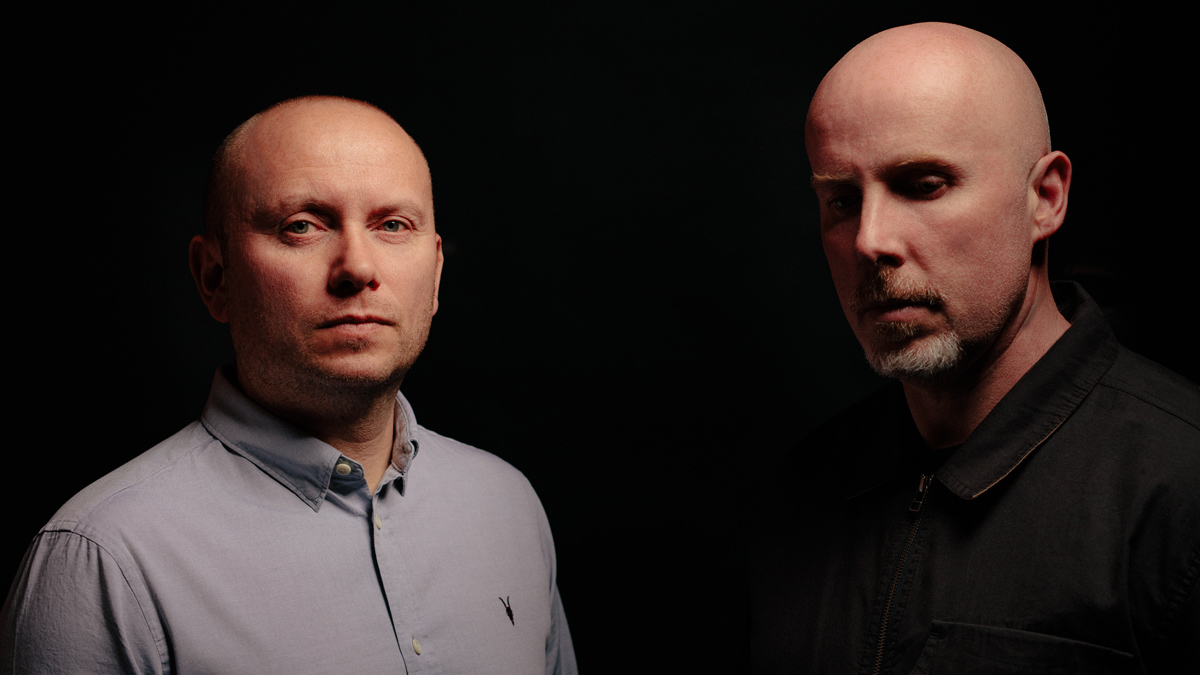Original Dodger: 5 things we’ve learned about music production
Words of experience from the UK Garage legends

Want all the hottest music and gear news, reviews, deals, features and more, direct to your inbox? Sign up here.
You are now subscribed
Your newsletter sign-up was successful
Pete Devereux and Mark Hill made their name as Artful Dodger, and were at the spearhead of the UK garage scene in the late ‘90s and early noughties. Their track Re-Rewind was a number two hit in the UK in 1999, and helped to launch the career of then unknown guest vocalist Craig David.
Having lost the rights to use their original name, the duo are now operating as Original Dodger, and returned in 2017 with Millionaire, their first single in 15 years. Find Space, their most recent release, features MOBO Award-winning Shakka.
With UK garage now enjoying a well-deserved renaissance, we picked Original Dodger’s pockets for five pearls of music-making wisdom.
1. Save and back up your tracks
“This may seem obvious to most people but it takes a while before this becomes habit. This needs to become second nature to the point where you can’t even remember saving, but find that you did when your DAW crashes. As a producer and track maker you should also give them sensible descriptive file names, not 'Idea 1' or 'Bass Tune'!
“We learned this the hard way when we made Rewind. After hours of work the computer crashed and corrupted the file and the only message on the screen was ‘end of file’. It was completely unrecoverable and it took us months to find the energy to redo the whole track from scratch. Luckily, we had made a rough recording on a cassette to remind us of how it went.
“Back up to multiple locations (online and external HDD) so if the worst happens you are covered.”
2. Do your housekeeping
“Keep your file structures organised. Label everything, and if you are a producer working on multiple projects, it's a good idea to have different directories for different artists - whatever makes the most sense to you.
Want all the hottest music and gear news, reviews, deals, features and more, direct to your inbox? Sign up here.
“Once a month, set an alert to remind you to do various updates - check everything is where it should be and take time to learn any new software you may have purchased. Also, once in a while it's fun to dive into something you haven't used for a bit and refresh yourself.
“The fewer distractions you have around you the more you can focus. This past year we have been in a lot of sessions and written a lot of songs with a bunch of different writers and we are constantly in and out of different tracks. It's a chore, but getting organised is key and a good habit to get into.”
3. Work fast
“As a producer and songwriter it is absolutely vital to work fast and lay down ideas without worrying too much about the finer details. There is a finite amount of time when you can remain objective in what you’re doing before you lose that initial vibe. If you spend hours finding the perfect keys sound or bass or EQing a snare drum you’ll get bored of the track and won’t be able to decide if you like the overall tune or not.
“We spend certain days coming up with a bunch of quick 32 bar loops (beats, basslines and chord progressions) that are ready to pull into sequences or to use as inspiration to get the ball rolling in a session. This saves us agonising over making a tune completely from scratch every time and losing that priceless window of objectivity.”
4. Make music for yourself
“Make music that you enjoy making! Don’t think of its commercial viability or whether it’s ‘current’ or fits in a particular genre or playlist. Chances are that if you are trying to make a hit track that’s of the moment it will take a while for you to get it ready for commercial release, and by then trends may have changed. Have fun with it, bend the rules and experiment - don’t just search for the popular sounds and arrangement. There are billions of people in the world and the chances are that there will be a market for whatever you want to make as long as it makes you feel good and is authentic.”
5. Take a break
“These days, a lot of people work from home, and there are distractions all around! When you get in the zone during the creative process it really is an incredible place to be, but it’s equally important to step away to give your ears a rest and come back fresh, especially when mixing.
“Keep your space a clean, tidy and vibey place to work and leave your daily stresses at the door; it's really hard to be creative when there is negativity in the room.”

I’m the Deputy Editor of MusicRadar, having worked on the site since its launch in 2007. I previously spent eight years working on our sister magazine, Computer Music. I’ve been playing the piano, gigging in bands and failing to finish tracks at home for more than 30 years, 24 of which I’ve also spent writing about music and the ever-changing technology used to make it.